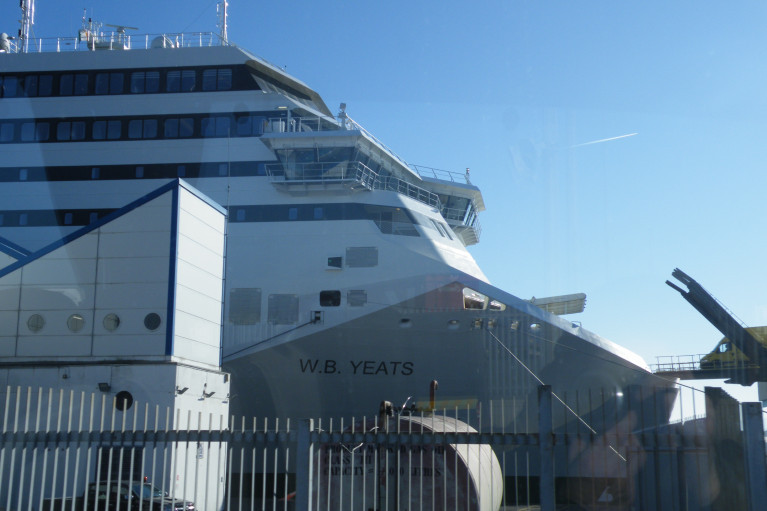Displaying items by tag: Revenues Rise
Revenues at Harland & Wolff Group up 65 Per Cent, but Shipyard Owner Takes £16m Half-Year Loss
Shipyard business Harland & Wolff Group Holdings has announced a 65% rise in revenues for the first half of 2023, however the Belfast based owner at Queen’s Island, still registered a loss of almost £16 million in the six month period.
According to Harland & Wolff’s interim financial results, for the six months ending June 30 2023, the London-listed company with an address at 10 Lower Thames Street, reported revenues of £25.53m. In comparison for the same six months of last year, the figure was £15.41m.
The interim report published by H&W also showed when it came to earnings before interest, taxes, depreciation, and amortization (EBITDA), the group with four sites, had made a loss of £15.92m.
The loss cites H&W was mainly due to its investment in headcount in preparation for delivery of the UK Ministry of Defence (MoD) £1.6 billion contract for three fleet solid support contract (FSS) ships to serve the Royal Fleet Auxiliary (RFA). In addition to losses related to other separate contracts.
The MoD’s contract for the trio of FSS newbuilds has been awarded to Spain’s Navantia, which is part the consortium Team Resolute which includes BMT, which won the contract to build the vessels.
H&W will be a sub-contractor in the FSS newbuild project from which it said to expect to earn between £700m and £800m from the deal.
The Irish News has more on the MoD contract and other developments.
Irish Ferries Owner ICG Sees Revenues Rise Almost 80% as Covid Curbs Dropped
Irish Ferries parent company Irish Continental Group (ICG), has reported a big jump in revenues as travel restrictions from Covid eased compared to the same time last year.
ICG said its group revenues in the trading period 10 months prior to the end of October soared to €500.5m, an increase of 78.9% compared with last year and a 62.1% increase on 2019.
In the ferry division which has four routes linking between Ireland, the UK and France, revenue came to €338m, an increase of 133.9% on the previous year and 83.4% rise on 2019.
According to the Dublin based group, the increases was mainly due to travel restrictions eased, coupled with an increased fuel surcharges. In addition the launch in June, 2021 on the UK-France route of Dover-Calais service operated by a trio of ferries competing with DFDS and P&O Ferries.
The ferry operator reported in the year up to 19 November that it carried a total of 525,600 cars which was an increase of 198% compared to the previous year.
For more RTE News reports figures for freight during the same trading period.
Irish Ferries owner Irish Continental Group has reported higher revenues and earnings for 2021 after what it called another challenging year for the group, with a continuation of travel restrictions due to Covid-19.
ICG said its revenues for the year to December rose by 20.7% to €334.5m from €277.1m in 2020.
It also reported a loss before tax of €4.1m, which marked an improvement on the loss of €18m reported in 2020.
The company's EBITDA rose by 24.2% to €52.3m from €42.1m in 2020 mainly due to increased revenues and a continued focus on cost optimisation.
ICG said the number of cars it carried on its ferries last year jumped by 48.5%, while passenger numbers rose by 28.7% and RoRo freight units decreased by 13.6%.
During the year, ICG started the new Irish Ferries' services on the Dover-Calais route. The new route started in June with the deployment of the Isle of Inishmore.
ICG said the route was further boosted with the introduction of the Isle of Innisfree onto the route on the 16 December 2021.
It also bought a third ship for the route to be named the Isle of Inisheer, which is expected to enter service onto the route in the first half of 2022.
Further coverage from RTE News.
























































